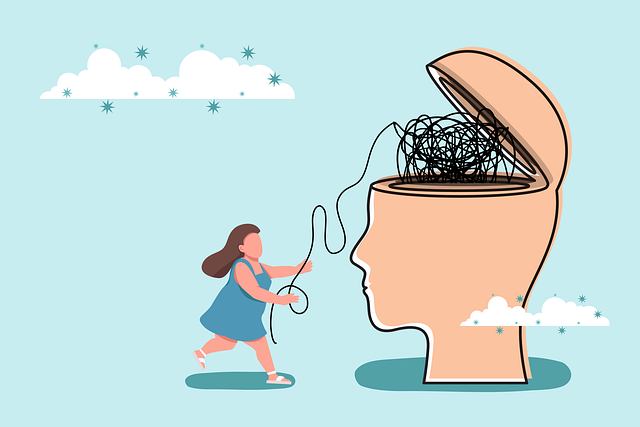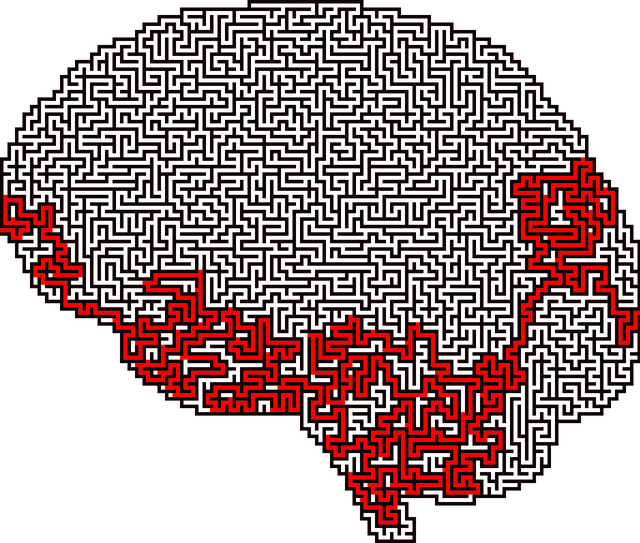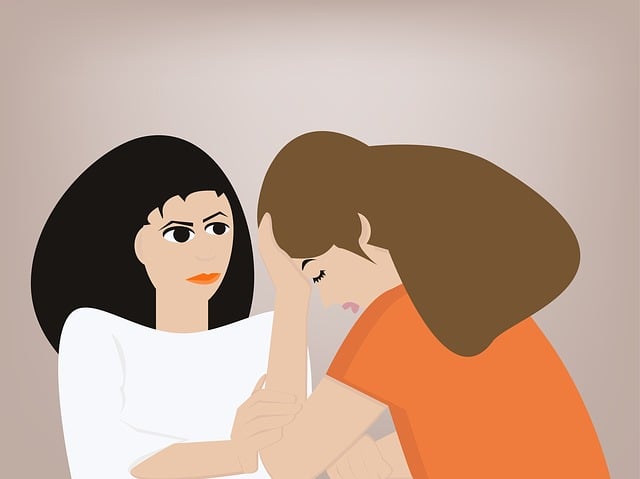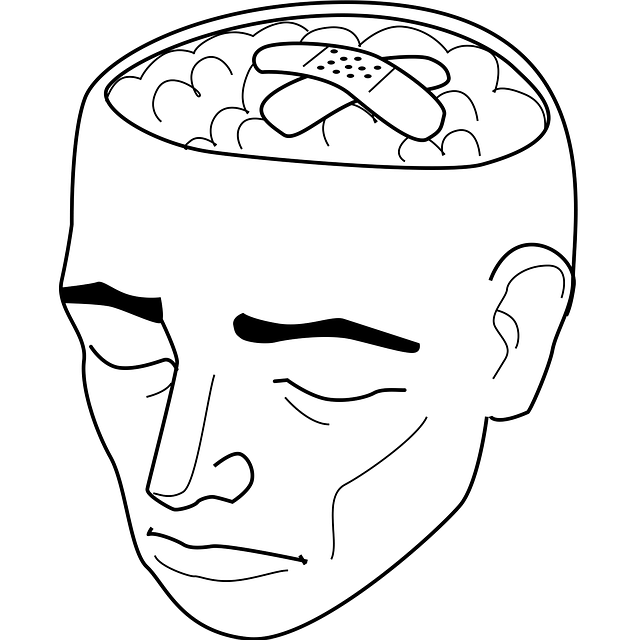Children's mental health is a vital yet often overlooked aspect of overall wellness, especially in today's fast-paced world. Early intervention through tailored therapy for French-speaking children is key to fostering mental well-being. This includes self-care practices like journaling, community outreach programs, and culturally sensitive education to address unique challenges. A structured but flexible self-care routine, incorporating physical activities, relaxation techniques, and cognitive strategies, is crucial. Creative therapeutic approaches like storytelling, playtherapy, and nature walks engage diverse learning styles and promote open communication. Encouraging resilience through consistent therapy builds inner strength and adaptability, empowering French-speaking children to navigate emotional challenges effectively.
Mental wellness self-care routines are essential for nurturing young minds, especially among French-speaking children. This article delves into the critical aspects of supporting their mental health, addressing cultural considerations unique to this demographic. We explore how to identify individual needs and present practical strategies for building a robust self-care routine. By integrating creative therapy techniques into daily lives, we can foster resilience and empower kids. Discover how consistent practice enhances well-being, tailoring care specifically to meet the diverse needs of French-speaking youth.
- Understanding Children's Mental Health and the Need for Self-Care
- Identifying Individual Needs: Cultural Considerations for French-Speaking Children
- Building Blocks of a Self-Care Routine for Young Minds
- Creative Strategies to Incorporate Therapy into Daily Life
- Encouraging Resiliency and Empowering Kids Through Consistent Practice
Understanding Children's Mental Health and the Need for Self-Care

Children’s mental health is a crucial aspect that often goes overlooked within the broader spectrum of wellness. It’s essential to recognize and address their psychological well-being, as much as physical health, especially in today’s fast-paced world filled with challenges unique to each generation. The demands of modern living can weigh heavily on young minds, leading to stress, anxiety, and even more profound mental health issues if left unaddressed.
Early intervention through therapy for children speaking French, or any language, is a powerful tool in fostering mental wellness. It provides a safe space for them to express their emotions, process experiences, and develop coping mechanisms. Incorporating self-care practices tailored to their needs, such as Mental Wellness Journaling Exercises, can significantly contribute to mood management. Community outreach programs that educate parents and caregivers on these matters can also play a pivotal role in implementing effective strategies for supporting children’s mental health.
Identifying Individual Needs: Cultural Considerations for French-Speaking Children

Identifying individual needs is a crucial step in designing an effective self-care routine for French-speaking children. Cultural considerations play a significant role in understanding their unique challenges and preferences. Many French-speaking communities have distinct values, beliefs, and traditions that shape their perceptions of mental health and well-being. For instance, some families may prioritize collective support and community engagement, while others might emphasize individual resilience and self-reliance.
When developing therapy for children from these communities, it’s essential to incorporate cultural sensitivity in mental health education programs. This can involve tailoring activities and discussions to resonate with their cultural backgrounds, ensuring that burnout prevention strategies are practical and relevant. Trauma support services specifically designed to address linguistic and cultural barriers can also be instrumental in fostering a safe and supportive environment for French-speaking children to express themselves and develop healthy coping mechanisms.
Building Blocks of a Self-Care Routine for Young Minds

Developing a self-care routine for young minds is an essential aspect of fostering mental wellness. For children, especially those speaking French, creating a structured yet flexible schedule can significantly impact their overall well-being. The building blocks of such a routine should include a combination of physical activities, relaxation techniques, and cognitive strategies tailored to their age group. Regular exercise, like outdoor play or yoga, releases endorphins, which can boost mood and reduce anxiety. Incorporating mindfulness practices, such as deep breathing exercises or guided meditations designed for children, helps young individuals learn to manage stress and regulate their emotions effectively.
Additionally, incorporating therapy sessions with a French-speaking healthcare provider can offer specialized support. Cultural competency training for mental health professionals ensures that they understand the unique needs and challenges faced by French-speaking children and their families. By addressing mental illness stigma reduction efforts through these tailored interventions, young minds can receive the care they need without barriers. This holistic approach to self-care enables children to develop resilience, foster healthy coping mechanisms, and navigate their emotional landscapes with greater ease.
Creative Strategies to Incorporate Therapy into Daily Life

Incorporating therapy into daily life doesn’t have to be a daunting task, especially when creative strategies are involved. For French-speaking children and their families, there are unique and engaging ways to make therapy an integral part of self-care routines. Consider incorporating storytelling or playtherapy sessions that allow for open dialogue and emotional expression in a fun and non-intimidating manner. These methods can effectively address various concerns, from managing stress reduction methods to building resilience.
Additionally, integrating art therapy, music therapy, or even simple nature walks into the routine offers alternative pathways for processing emotions and experiences. Such self-care practices cater to different learning styles, making therapy accessible and appealing. By embracing these creative approaches, families can foster open communication, strengthen bonds, and cultivate healthier mental wellness in a way that aligns with their cultural background and preferences.
Encouraging Resiliency and Empowering Kids Through Consistent Practice

Encouraging resilience and empowering children through consistent practice is a key aspect of mental wellness self-care routine development. By integrating therapy for children French speaking, parents and caregivers can help kids navigate emotional challenges with greater ease. Through regular sessions, children learn coping strategies that foster burnout prevention and anxiety relief, allowing them to build inner strength and adaptability.
Consistent exposure to compassion cultivation practices within these therapeutic settings further enriches a child’s ability to manage stress and connect with their emotions. By teaching empathy, self-compassion, and mindful awareness at an early age, we equip children with lifelong tools to navigate life’s ups and downs with grace and resilience.
In developing a mental wellness self-care routine for children, especially those from French-speaking backgrounds, it’s crucial to understand their unique cultural needs. By incorporating creative strategies that seamlessly integrate therapy into daily life, parents and caregivers can foster resilience and empower kids. Consistent practice plays a vital role in enhancing mental health, ensuring these young minds thrive in a supportive environment. For families seeking effective Therapy for Children French Speaking, these techniques offer a holistic approach to nurturing overall well-being.











